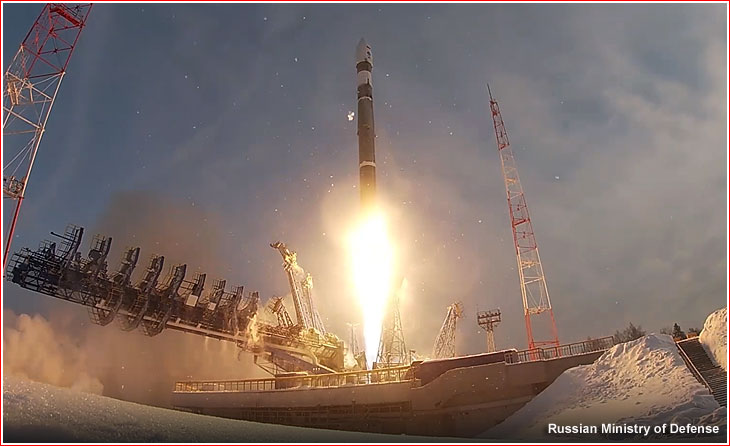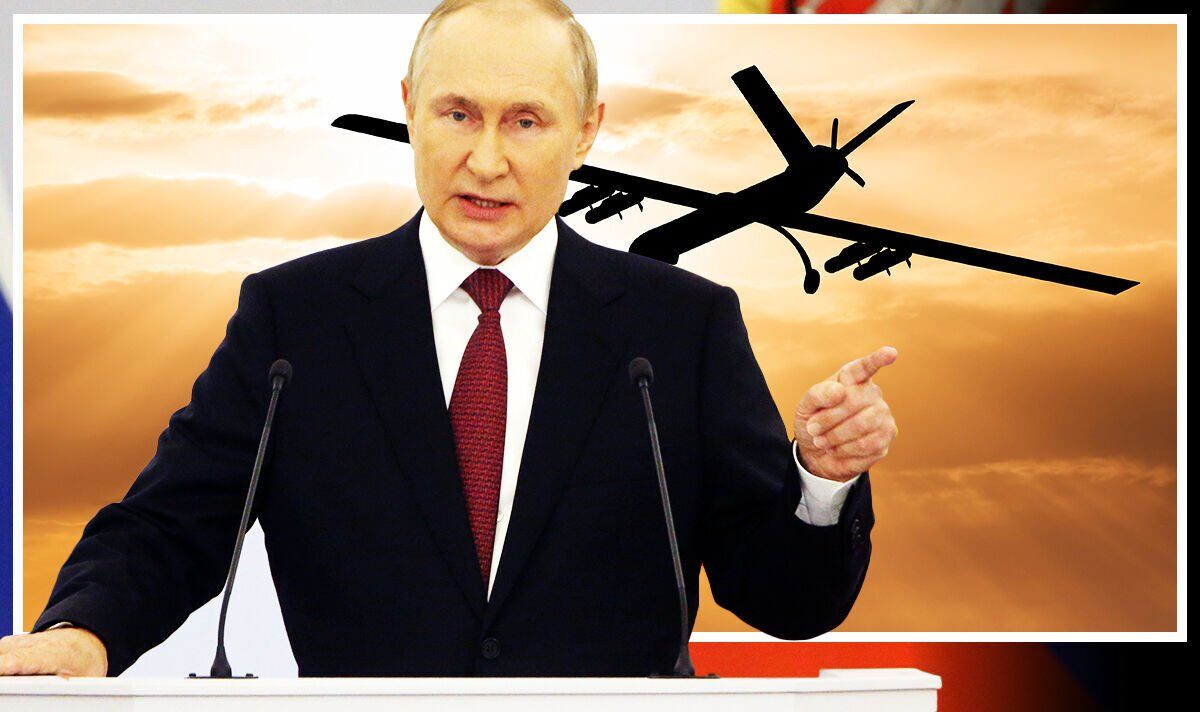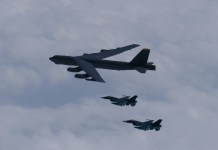United States intelligence community has expressed fears that Russia is planning to place a nuclear weapon in space, triggering calls from Congress members to declassify the information that posed a grave threat to American security.
An explosive tweet from Republican Ohio representative Mike Turner, who is also the chair of the House of Representatives Intelligence Committee, struck a chord with Twitteratti, who posted several reports of possible Russian nuke being put in orbit.
The news spread like wildfire on social media despite efforts from the White House to control the flow of information. ABC News cited two unnamed sources saying the weapon would disable satellites, not ground targets.
A USA Today report claimed, citing unnamed American officials, that the Biden administration informed the US Congress that it has fresh intelligence of Russia’s desire to put a nuclear weapon in space.
The report said Turner asked Biden to “declassify all information relating to this threat so that Congress, the administration, and our allies can openly discuss the actions necessary to respond to this threat.”
Statement from Chairman @RepMikeTurner: pic.twitter.com/OA9yJuEPlf
— House Intelligence Committee (@HouseIntel) February 14, 2024
Turner, who did not disclose further details, told House colleagues in a letter that his committee voted on February 13 to make certain information about the threat available to all members of Congress.
The House Intelligence Committee publicly urged the Biden Administration to put the intelligence input before the US citizens, calling the alleged Russian move “a destabilizing foreign military capability” constituting “a serious national security threat.”
The ABC News report claimed, citing unnamed sources, that the Russian capability “would not be to drop a nuclear weapon onto Earth but rather to use against satellites possibly.”
US National Security Advisor Jake Sullivan expressed surprise over Turner’s remarks, asking how he would meet the intelligence and defense professional at a meeting that would include four of his party leaders in the Congress, apart from leaders from the Congress.

Senate Select Committee on Intelligence Chairman Mark Warner, a Democrat representing Virginia, and Vice Chairman Marco Rubio, a Republican from Florida, released a joint statement saying their committee had been “rigorously tracking this issue from the start.”
“We continue to take this matter seriously and are discussing an appropriate response with the administration. In the meantime, we must be cautious about potentially disclosing sources and methods that may be key to preserving a range of options for US action,” the two leaders said.
Only last week, Russia launched a Soyuz-2-1v rocket with a classified military payload. US officials have repeatedly highlighted the aggressively growing Russian space activity for years now, from alleged rogue satellites to space ramming weapons.
5 days ago Russia launched a Soyuz-2-1v rocket into space, carrying a classified payload for the Ministry of Defense. Satellite Kosmos-2575 is now in orbit and under the control of the Russian Air and Space Forces.
H/T @John_A_Ridge https://t.co/4uksa5HVaZ pic.twitter.com/YJGAOtmFEc
— Colby Badhwar 🇨🇦🇬🇧 (@ColbyBadhwar) February 14, 2024
A sample of what a nuclear weapon detonation in space could mean can be gleaned from the 1962 Starfish Prime detonation of a 1.4-megaton device about 250 miles above the Pacific Ocean, which caused a geomagnetic storm that reportedly destroyed satellites, Defense One said in a report.
A year later, the US and several nations signed the Nuclear Test Ban Treaty prohibiting such experiments. In 1967, the ‘Treaty on Principles Governing the Activities of States in the Exploration and Use of Outer Space’ (commonly referred to as the ‘Outer Space Treaty’ or OST) prohibited the weaponization of space.

The OST, created in the context of a Cold War nuclear arms race, recognized the potential issue of space-based nuclear weapons and prohibited the placement of any weapons of mass destruction (WMD) in orbit, though both what the WMD and ‘Orbit’ mean were left undefined.
In recent years, the US military has been seized of developing counter-measures and mitigation plans for its satellites against a possible nuclear weapon blast in space, including a probable use of radio waves to clear the radiation in orbit.
Experts believe that nuclear weapon use in space and its effects would be exponentially more devastating than it was in the 1960s when the OST was put in place, as commercial satellites have increased massively.
In 2023, the Center for Strategic and International Studies offered this description in its Space Threat Assessment: “The use of a nuclear weapon in space would have large-scale, indiscriminate effects that would be attributable and publicly visible.
“A nuclear detonation in space would immediately affect satellites within range of its EMP (Electro-magnetic Pulse), and it would also create a high-radiation environment that would accelerate the degradation of satellite components over the long term for unshielded satellites in the affected orbital regime.”
- NC Bipindra is a 30-year veteran in journalism specializing in strategic affairs, geopolitics, aerospace, defense, and diplomacy. He has written extensively for the Times of India, New Indian Express, Press Trust of India, and Bloomberg News. He can be reached at ncbipindra (at) gmail.com
- Follow EurAsian Times on Google News




